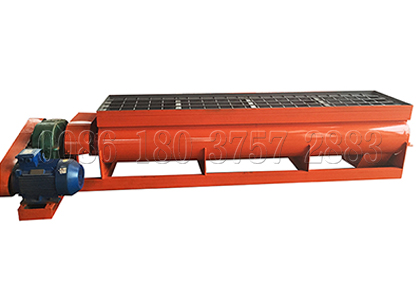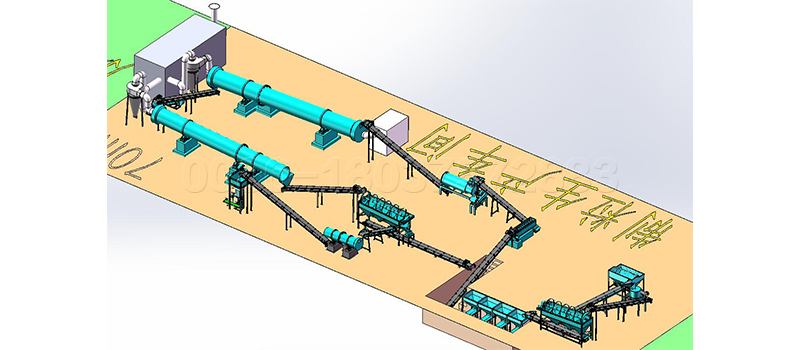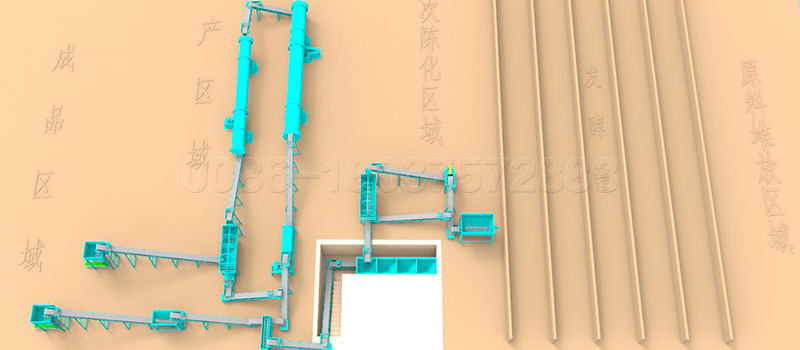Can NPK compound fertilizer be mixed with organic fertilizer decomposed by fermentation?
The answer is: of course. Fertilizer is a very important link in traditional agricultural production, and the collocation of fertilizer is in the majority. Now NPK fertilizer granulator manufacturer will introduce the mixing function of organic fertilizer and compound fertilizer.
1. When straw is returned to the field and immature organic fertilizer is applied, chemical nitrogen fertilizer can be added to avoid slow nitrogen deficiency in the early stage of crops, and nitrate nitrogen and ammonium nitrogen need to be provided at the same time. In the mature stage of cereal crops, it can be realized by organic fertilizer.

2. Adding organic fertilizer to the chemical fertilizer production line can reduce some adverse side effects of chemical fertilizer. If nitrogen, phosphorus and potassium fertilizer is mixed with organic fertilizer, this problem will not occur. More detailed info on blenders selection, go to https://www.fertilizer-plants.com/fertilizer-blender/
In addition, if physiological acid fertilizer is applied alone for a long time, it will turn the soil into acid and produce too many harmful substances such as active iron and active aluminum, which will be toxic to crops. However, mixed application with organic fertilizer can increase the buffering performance of soil and prevent soil acidification.
In fact, fertilizer plants often mix organic fertilizer with NPK fertilizer and use drum granulator to make organic compound fertilizer particles.
3. Mixed organic compound fertilizer can increase the nutrient content of crop nutrient organic fertilizer, with stable and lasting fertilizer effect and more organic matter.
It can improve the content of soil organic matter and improve the physical and chemical properties of soil. It can not only provide nutrition for crops, but also provide nutrients such as nitrogen, phosphorus, potassium, vitamins and growth hormone for soil microorganisms. After applying organic fertilizer, soil enzyme activity increased, which was conducive to the transformation of nutrients.
4. Mixed fertilizer improves fertilizer efficiency. Fertilizers such as calcium superphosphate and trace elements are fixed by the soil and become invalid after being applied to the soil. The mixed use of chemical fertilizer and organic fertilizer can reduce the contact surface with soil and reduce the fixation of nutrients.
Organic fertilizer can increase the solubility of phosphate rock, and the effect is better under paddy field conditions.
In the chemical fertilizer production line, chemical fertilizer and organic fertilizer are processed together. When applied to the soil, chemical fertilizer can be absorbed and stored by organic fertilizer to reduce losses. In addition, the mixing of chemical fertilizer and organic fertilizer can also promote the maturity of organic fertilizer and improve fertilizer efficiency. More detailed go to https://www.fertilizer-plants.com/double-roll-granualting-machine-in-canada/



